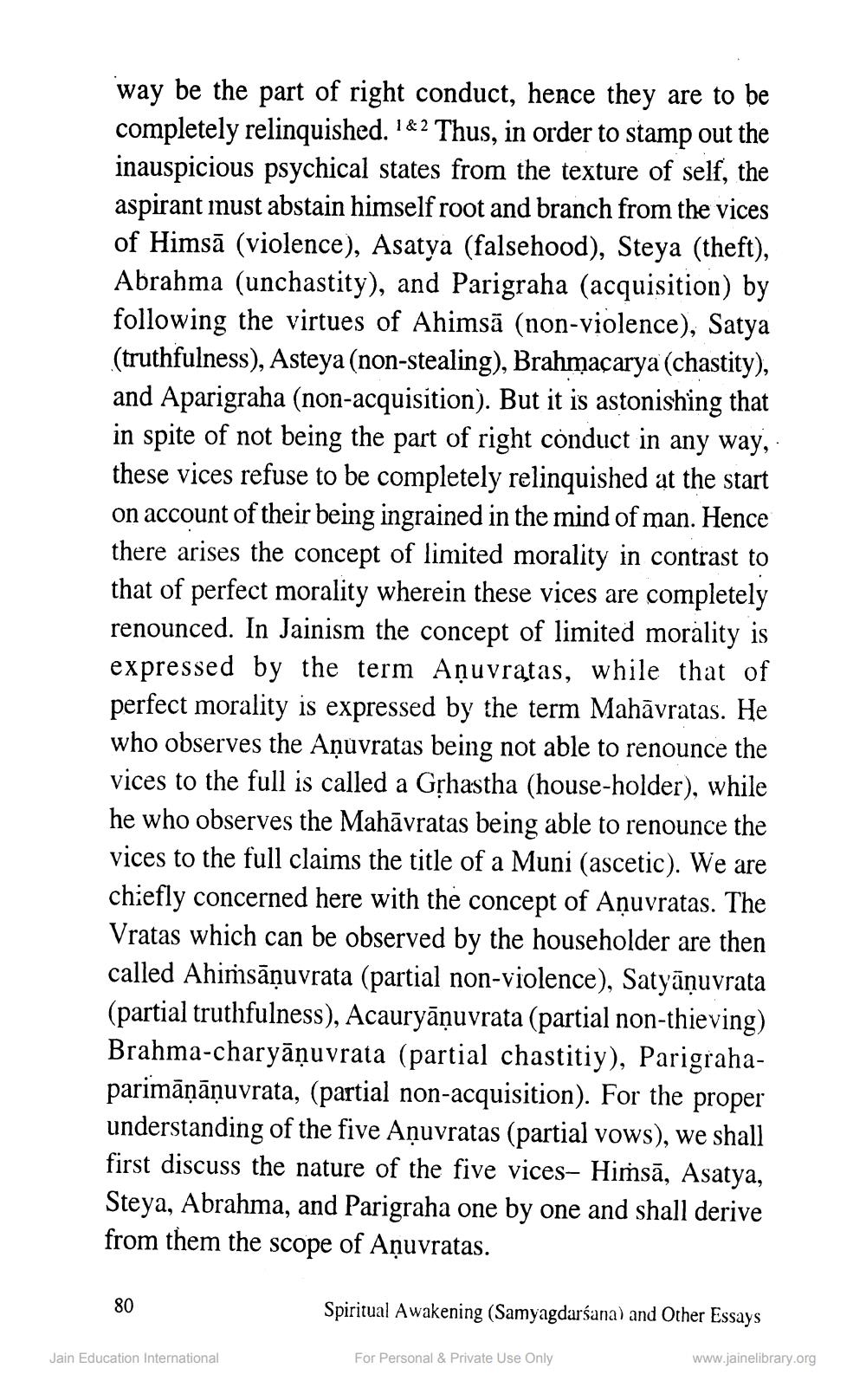________________
way be the part of right conduct, hence they are to be completely relinquished. 1&2 Thus, in order to stamp out the inauspicious psychical states from the texture of self, the aspirant must abstain himself root and branch from the vices of Himsā (violence), Asatya (falsehood), Steya (theft), Abrahma (unchastity), and Parigraha (acquisition) by following the virtues of Ahimsa (non-violence), Satya (truthfulness), Asteya (non-stealing), Brahmacarya (chastity), and Aparigraha (non-acquisition). But it is astonishing that in spite of not being the part of right conduct in any way, these vices refuse to be completely relinquished at the start on account of their being ingrained in the mind of man. Hence there arises the concept of limited morality in contrast to that of perfect morality wherein these vices are completely renounced. In Jainism the concept of limited morality is expressed by the term Aṇuvratas, while that of perfect morality is expressed by the term Mahāvratas. He who observes the Aṇuvratas being not able to renounce the vices to the full is called a Gṛhastha (house-holder), while he who observes the Mahāvratas being able to renounce the vices to the full claims the title of a Muni (ascetic). We are chiefly concerned here with the concept of Anuvratas. The Vratas which can be observed by the householder are then called Ahimsaṇuvrata (partial non-violence), Satyaṇuvrata (partial truthfulness), Acauryāṇuvrata (partial non-thieving) Brahma-charyāṇuvrata (partial chastitiy), Parigrahaparimāṇāṇuvrata, (partial non-acquisition). For the proper understanding of the five Anuvratas (partial vows), we shall first discuss the nature of the five vices- Himsā, Asatya, Steya, Abrahma, and Parigraha one by one and shall derive from them the scope of Aņuvratas.
80
Jain Education International
Spiritual Awakening (Samyagdarśana) and Other Essays
For Personal & Private Use Only
www.jainelibrary.org




